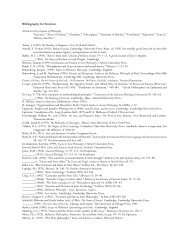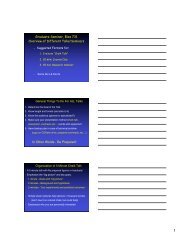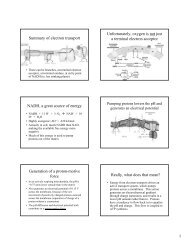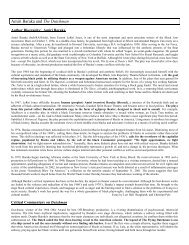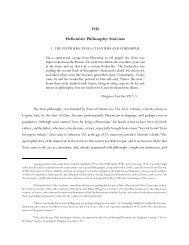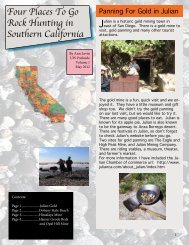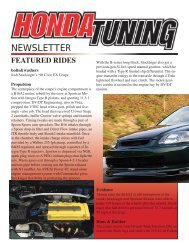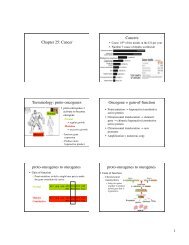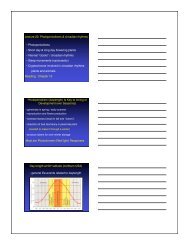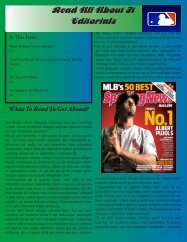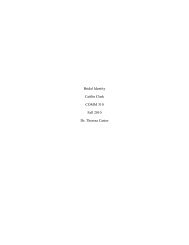V. VERB QUALITIES - UW-Parkside: Help for Personal Homepages
V. VERB QUALITIES - UW-Parkside: Help for Personal Homepages
V. VERB QUALITIES - UW-Parkside: Help for Personal Homepages
Create successful ePaper yourself
Turn your PDF publications into a flip-book with our unique Google optimized e-Paper software.
though it may also be combined with “do so”:<br />
(8) Martha could sing well, and George could too.<br />
(9) Martha could sing well, and George could do so too.<br />
(10) Martha is singing now, and George is too<br />
(11) Martha has sung be<strong>for</strong>e, and George has done so too.<br />
As usual, be behaves like an auxiliary even when a main verb and the behavior of have as<br />
main verb is unpredictable, with either sentence (13) or sentence (14) being acceptable:<br />
(12) Martha is a soprano, and George is too.<br />
(13) Martha has a lovely voice, and George has too.<br />
(14) Martha has a lovely voice, and George does too.<br />
As a “pro-verb” or a product of DO-INSERTION, do brings no meaning of its own to the<br />
sentence. Every once in a while, however, it is a normal main verb conveying an action one<br />
is expected to deduce from the verbal context, as in the following sentences:<br />
(15) Alphonse does my hair himself.<br />
(16) Do it to me, baby, one more time.<br />
(17) Debby does Dallas.<br />
As a pro-verb or main verb, do itself requires Do-INSERTION <strong>for</strong> yes/no questions, the<br />
emphatic do, and negative sentences:<br />
(18) Did you do this?<br />
(19) Daddy did do time, .<br />
(20) I didn’t do anything.<br />
EXERCISE 5.03: Uses of DO–Say whether each use of do is a main verb,<br />
a pro-verb, or supplied by DO-insertion <strong>for</strong> an interrogative, a<br />
negative sentence, or emphasis.<br />
1) A little chocolate now and then doesn’t hurt.<br />
2) Daddy does the dishes<br />
3) Does your mother know that you’re out?<br />
4) Don’t climb a tree to look <strong>for</strong> fish.<br />
5) I do believe in life on Mars.<br />
6) My baby does me good.<br />
7) No man manages his affairs as well as a tree does.<br />
8) She told me to stop and I did.<br />
9) What if some random stranger really does want to give you<br />
money?<br />
10) Why do birds suddenly appear?<br />
Dare and need were also used as modals in older <strong>for</strong>ms of English, but these days we<br />
more commonly use expressions like dare to, need to, have to, ought to. Like be<br />
going to, have to, and used to. Such expressions are sometimes called quasi-modals<br />
or semi-modals. Such expressions are part of a larger group called quasi-auxiliaries<br />
and thus part of an even larger group called catenative verbs.<br />
Other traditional modals are need, dare, and ought to:<br />
(1) Need you go?<br />
(2) Dare you ask such a question?<br />
116



